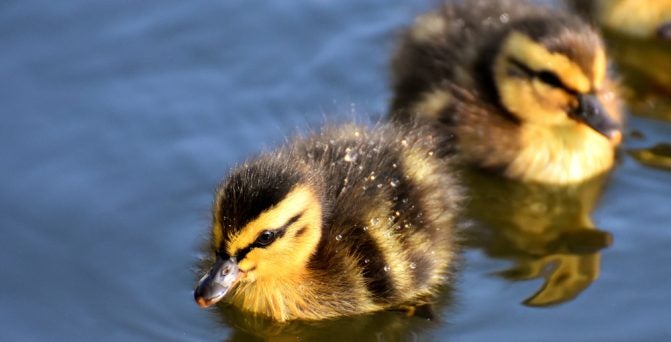
Upgrade your boat this winter with these three easy eco-projects
When we say boaters like to be greener, we’re not talking about seasickness. Rather, boaters value healthy aquatic ecosystems, and we all want to protect them as best we can.
We like to think that we are a responsible lot, and collectively, we probably do have a greater sensitivity to clean water than most people – mainly because we spend so much time floating around on the stuff. But there are always things we can do to take even greater care of our greatest natural resource, and further reduce our eco-impact. Or, be greener boaters.
Winter is a prime time to perform easy, eco-friendly upgrades that aren’t just good for the environment, but can improve your boat’s performance. Here are three easy steps to becoming a greener boater.
1. Sink the Zincs
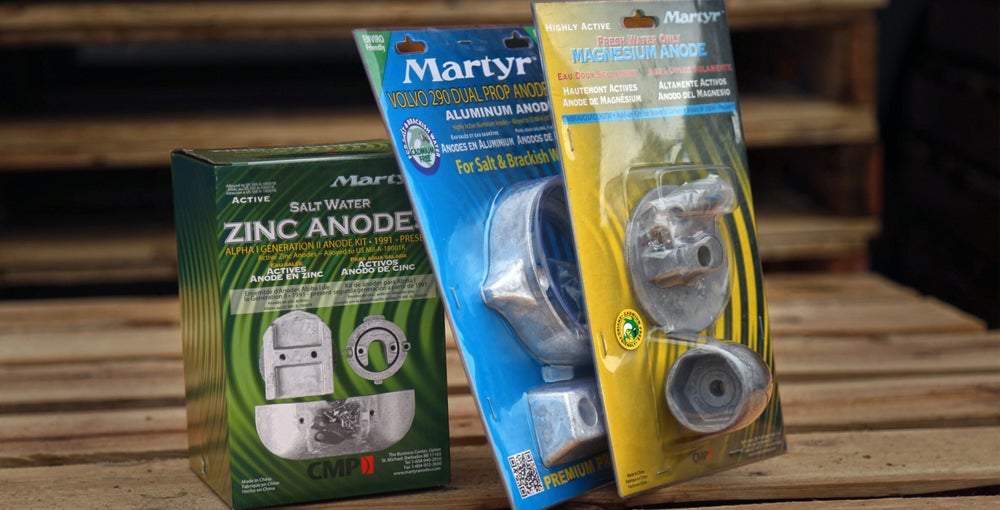
Replace toxic zinc anodes with aluminum or magnesium versions.
Most of us don’t give a second thought to our sacrificial anodes – those curious knobs of raw metal found on engine outdrives, shafts, rudders and other metal components that dangle under the boat. But we really should.
Metal corrodes in water as a result of naturally occurring electro-chemical reactions. Anodes are made from metals that have a particularly attractive electro-chemical voltage range, so these corrosive reactions tend to concentrate on the anode while skipping adjacent metal parts. It’s a bit like catering a kid’s birthday party by serving cake and broccoli at the same time – the cake gets devoured, while the broccoli escapes untouched.
Anodes have traditionally been made of zinc – to the point they’re universally known as “zincs” rather than by their proper name. The problem with zinc is that it can be really harmful when found in high concentrations, such around marina docks. If you still have zinc anodes on your boat, ditch them now and replace them with aluminum anodes instead. It’s just a five-minute job with a screwdriver.
Aluminum anodes are more than twice as effective at protecting metal parts than zinc, which is why they now come as standard equipment on virtually every outboard and sterndrive engine made today. They also last up to 50 percent longer than zinc anodes of comparable size. What’s more, they even cost less. There really isn’t a downside to aluminum, which begs the question why anyone would use continue to use zinc.
For even better performance, try anodes made from magnesium. They cost more, but provide the ultimate protection for boats in freshwater. Stick with aluminum, however, for boats in saltwater environments. While magnesium works well, they tend to dissolve so quickly in the sea that costs quickly add up.
Want to be a greener boater? Sinking your zincs might be the easiest place to start.
2. Keep a Clean Hull
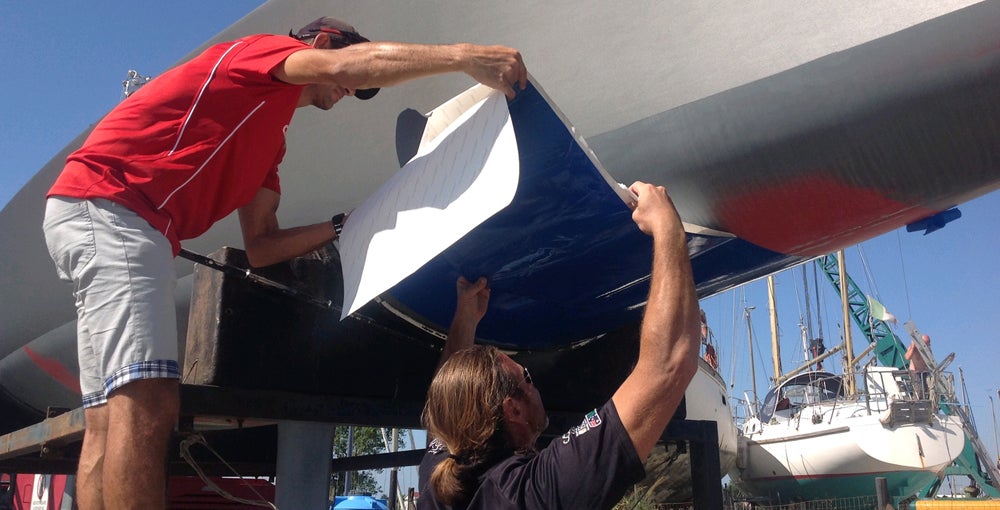
MacGlide goes on like wallpaper, making it impossible for growths to stick to your hull.
Put a new boat in the water and within seconds a variety of aquatic organisms are looking at it as a prospective new home.
It doesn’t matter if you boat in freshwater or the open sea, marine growths love to adhere to boat hulls, and they can cause real problems – including reducing the hull’s efficiency, so you burn far more fuel. It’s not just harder on the wallet, it’s harder on the environment too.
For years the standard way of keeping growths off of boats was to paint the hull bottom with some kind of biocide paint. But leeching toxins into the water isn’t a great idea either, which is why greener boaters are so enthused by a new, non-toxic bottom coating makes boats too slippery for marine growths to hold onto.
MacTac – the company that has lined kitchen shelves for decades and decorated millions of student notebooks with its peel-and-stick colored vinyl – is now selling a patent-pending anti-fouling film called MacGlide that contains no biocides, making it safer both for the environment and any people who come into contact with it.
Sold in rolls, MacGlide self-adhesive film sticks to the hull like tape, and is applied on overlapping layers from bow to stern. Once the hull bottom is fully covered, a finishing varnish hardens it to form an armour-like seal. Growths can still cling to the hull when the boat is tied up to the dock, but once the hull begins moving through the water at more than about 5 mph, water pressure makes it impossible for the critters to hold on, sending even tough customers like barnacles and zebra mussels sliding down the hull to simply fall off at the transom.
As an added bonus, MacGlide reduces hull friction in the water and lowers drag, giving boats a slightly higher top speed while reducing annual fuel costs by up to six percent.
3. Upgrade Your Batteries
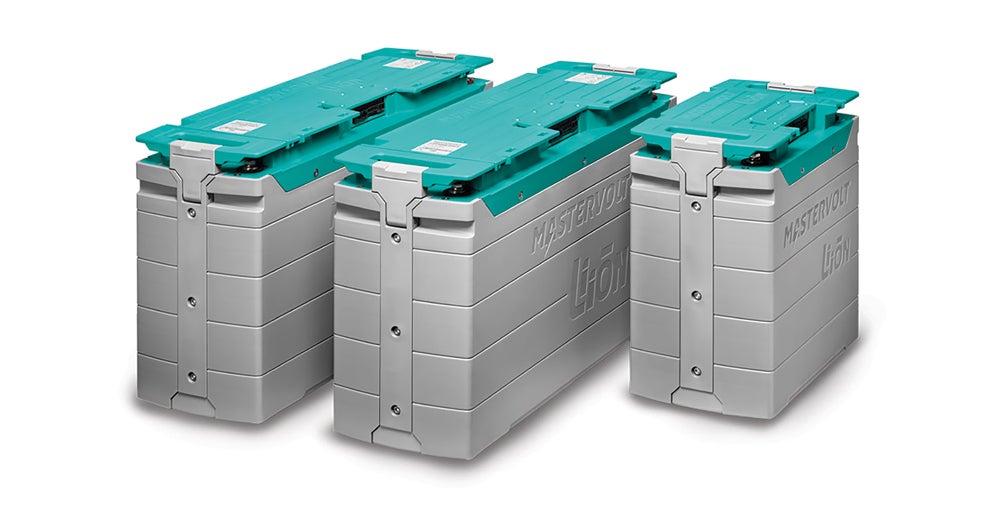
Lithium-ion batteries last up to seven times longer than lead acid cells, saving money and adding up to less waste going into landfills.
Whether you’re a fisherman powering an electric trolling motor or a cruiser trying to keep appliances running between ports, all boats rely on deep-cycle lead acid batteries. The problem is that lead acid batteries seldom last for long, and it doesn’t take too many charging cycles before their performance starts to really decline. If you use your boat a lot, you could find yourself replacing them altogether every two or three years. That’s a lot of toxic stuff going into landfill.
It’s also why smart boaters are now ditching their old deep-cycle lead acid and gel cells for modern lithium ion batteries.
Lithium-ion batteries blow away older types with run times that are two to three times longer, giving them ample capacity to run energy-sucking devices like trolling motors or air conditioners for at least twice as long as the lead acid batteries they replace.
They also last around seven times longer overall. Where standard deep cycle cells usually need to be replaced after around 500 charging cycles, lithium-ion batteries can last over 3,500 cycles before giving up the ghost.
Although they are more expensive to buy, lithium-ion batteries last so much longer that they save you money in the long haul. And, you have fewer dead batteries going into landfill. Talk about a winning combo!
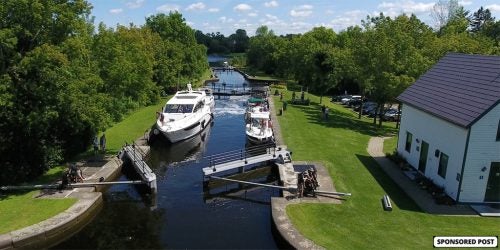
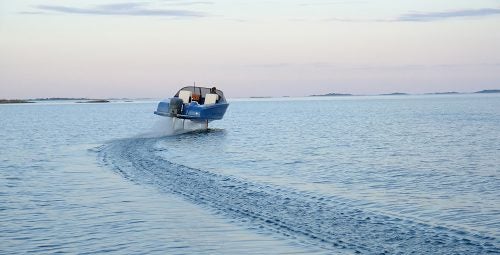



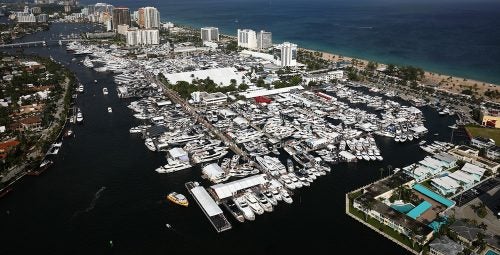 Fort Lauderdale International Boat Show Preview
Fort Lauderdale International Boat Show Preview 10 Best New Boat Accessories at IBEX 2021
10 Best New Boat Accessories at IBEX 2021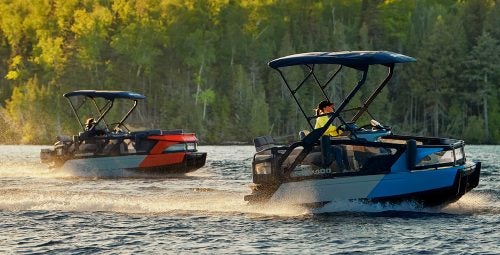 2022 Sea-Doo Switch Pontoon Boat Lineup Unveiled
2022 Sea-Doo Switch Pontoon Boat Lineup Unveiled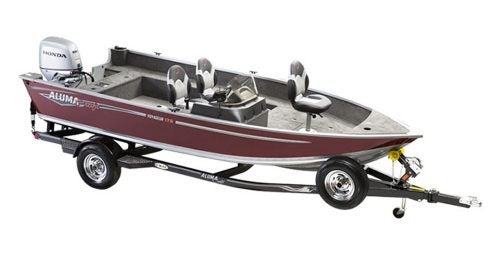 BRP Enters Fishing Boat Market with Purchase of Alumacraft Boat
BRP Enters Fishing Boat Market with Purchase of Alumacraft Boat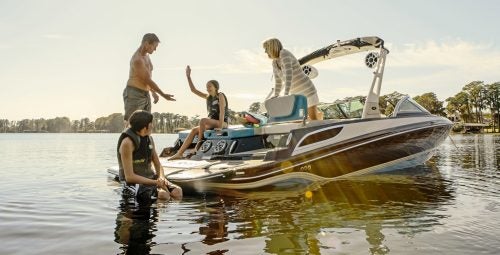 Volvo Commits To Electric Power By 2021
Volvo Commits To Electric Power By 2021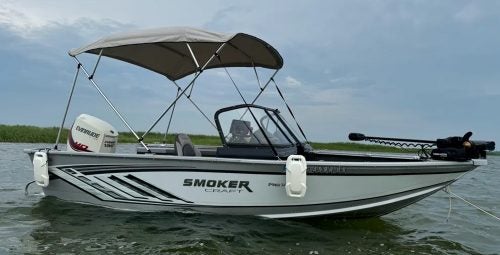 Kemimoto 4 Bow Bimini Top and Boat Bumper Review
Kemimoto 4 Bow Bimini Top and Boat Bumper Review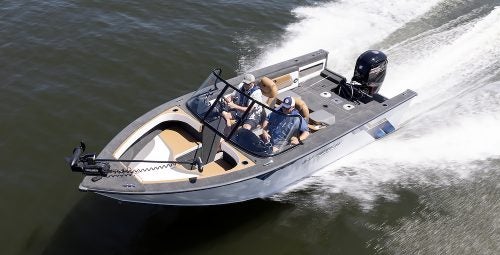 Starweld Victory 20 Review
Starweld Victory 20 Review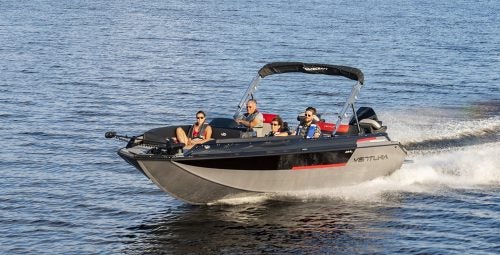 Princecraft Ventura 23 RL Review
Princecraft Ventura 23 RL Review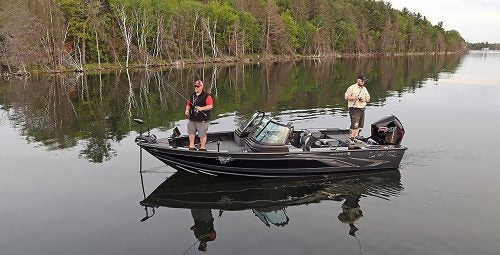 Lund 2075 Pro V Review
Lund 2075 Pro V Review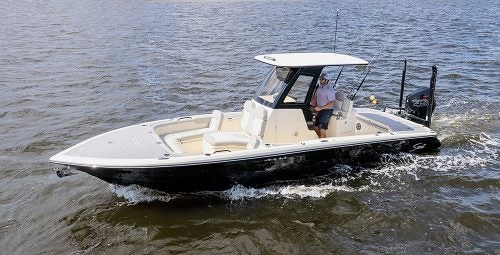 Scout 281 XSS Review
Scout 281 XSS Review Fuel Saving Tips For Boaters
Fuel Saving Tips For Boaters Best Boating Accessories
Best Boating Accessories Best Boating Apps
Best Boating Apps 5 Pontoon Boats That Are Made To Fish
5 Pontoon Boats That Are Made To Fish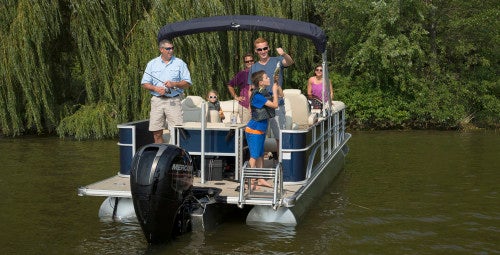 10 Great Small Pontoons
10 Great Small Pontoons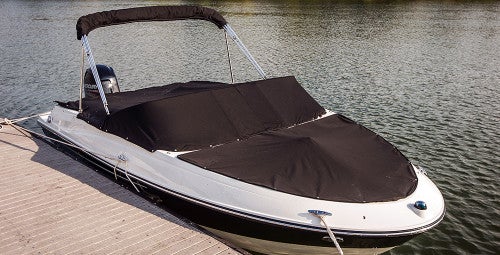 Your Boat Was Expensive—Do You Really Trust a $2 Rope From the Dollar Store to Secure It?
Your Boat Was Expensive—Do You Really Trust a $2 Rope From the Dollar Store to Secure It?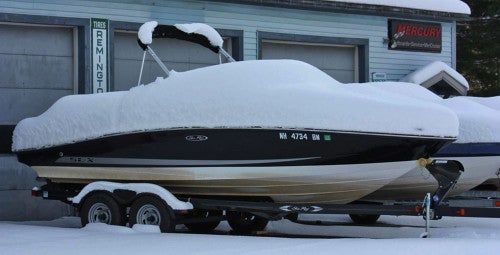 Do I Need Insurance Coverage Against Ice or Freezing Damage?
Do I Need Insurance Coverage Against Ice or Freezing Damage? What Kind Of Insurance Coverage Do I Need?
What Kind Of Insurance Coverage Do I Need?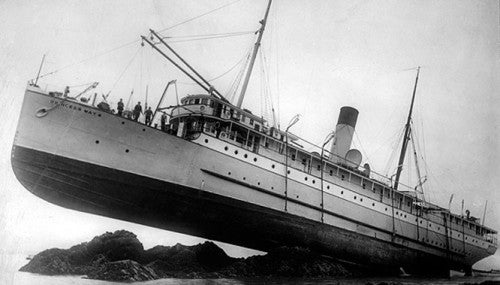 What About Salvage?
What About Salvage?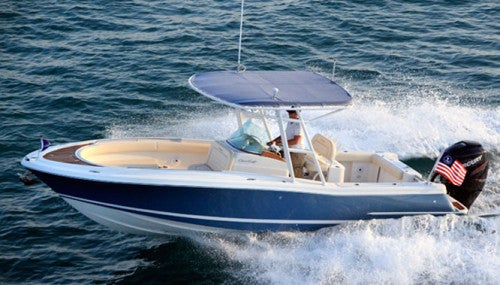 Boat Insurance or Yacht Insurance?
Boat Insurance or Yacht Insurance?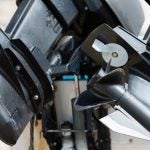
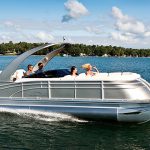
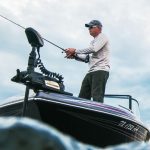
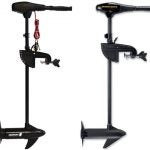
 The Best Bowriders For The Money
The Best Bowriders For The Money
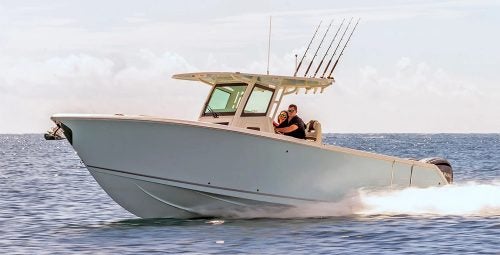 Sailfish 312CC Review
Sailfish 312CC Review
 The Wildest Concept Yachts
The Wildest Concept Yachts
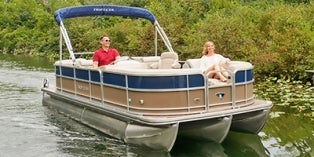 2016 Trifecta 200 Series 220FCR
2016 Trifecta 200 Series 220FCR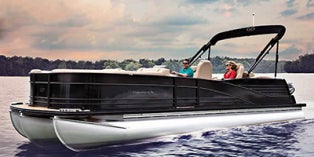 2016 Harris Grand Mariner SL 270 DL
2016 Harris Grand Mariner SL 270 DL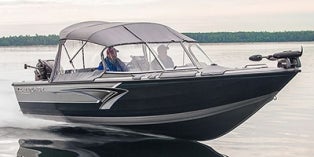 2016 Crestliner Authority 2050
2016 Crestliner Authority 2050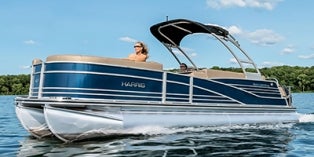 2016 Harris Grand Mariner SL 230 DLDH
2016 Harris Grand Mariner SL 230 DLDH
